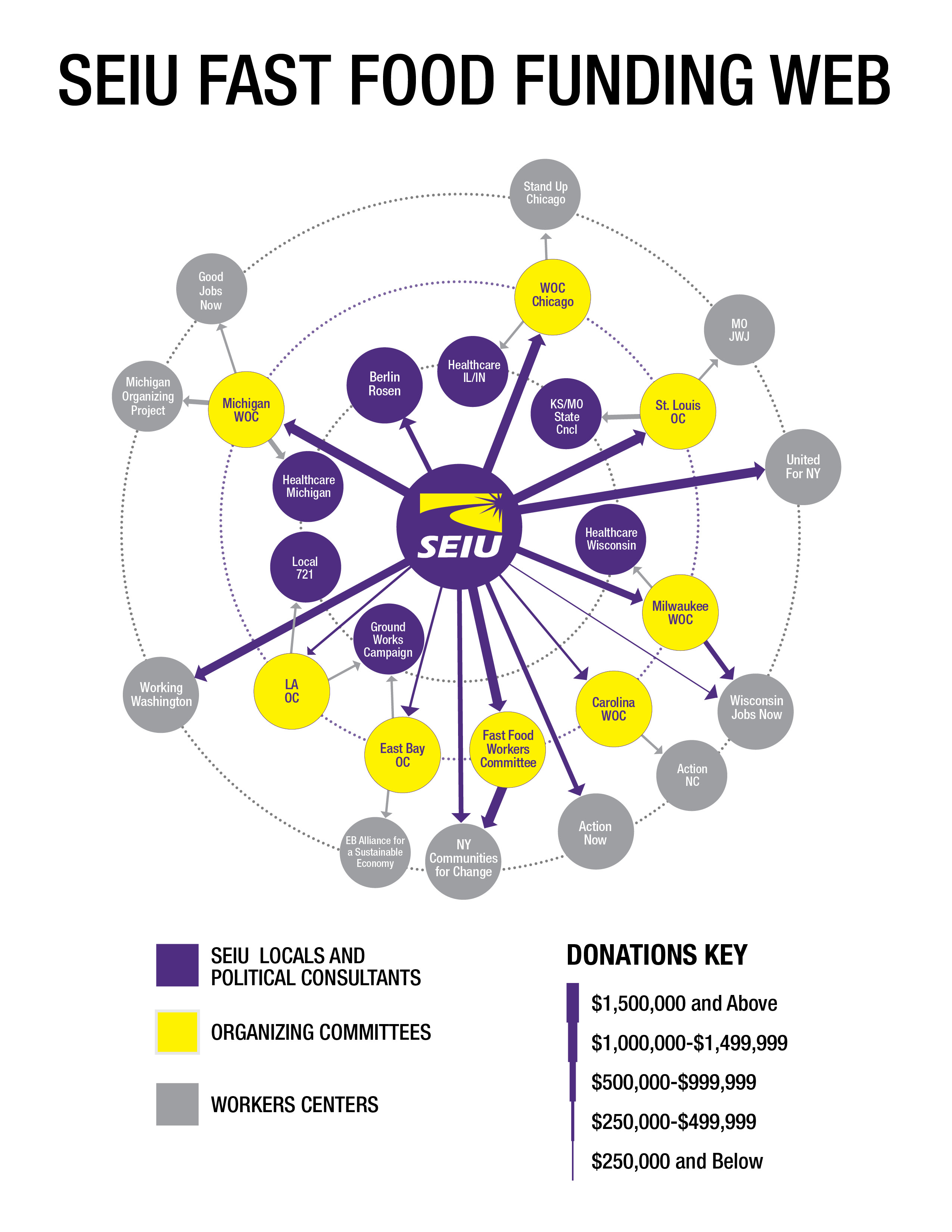From the moment President Obama was elected, labor unions have demanded what former AFSCME boss Gerald McEntee memorably called “payback” for putting millions of dollars behind his election efforts.
This week, “payback” came in the form of a new director of the Labor Department’s Wage and Hour Division (WHD), David Weil. Weil is a former professor at Boston University with an affinity for organized labor, which hailed his confirmation. His confirmation will be a boon to the Service Employees International Union (SEIU) in its $15-million-plus effort to unionize America’s restaurant industry.
SEIU has been pushing to unionize restaurants since at least 2009. Leaked internal documents showed SEIU was developing a major plan for card checks at restaurant chains in big cities “after labor law reform”—that is, after Congress passed the card-check bill. That never happened, so SEIU needed a new plan.
Enter “worker organizing committees” and a novel legal theory about franchised industries (such as restaurant chains). The SEIU believes that by threats of class-action lawsuits—like one recently filed with SEIU aid against McDonald’s—they can force national restaurant chains to sign card-check “neutrality agreements” with SEIU and enable speedy organizing of the franchisees.
But there’s another side of this strategy— “strategic enforcement” by David Weil’s team at the Labor Department. Weil literally wrote the manual on this pressure tactic, where “fissured industries” that consist of many small franchised operators (e.g. restaurants) are singled out for government scrutiny.
With threats of regulatory enforcement on one claw and union-backed litigation on the other, America’s businesses and employees face a crushing squeeze by SEIU, where national union bosses essentially hold brand companies hostage until they force small-business franchisees to agree to card check. The Employee Rights Act, a proposed piece of federal legislation, would require the formation of any of these unions to take place only after a secret ballot vote.
Congressional action may be the only thing protecting employees from a union intimidation campaign of a scale the nation hasn’t seen in a long, long time.




